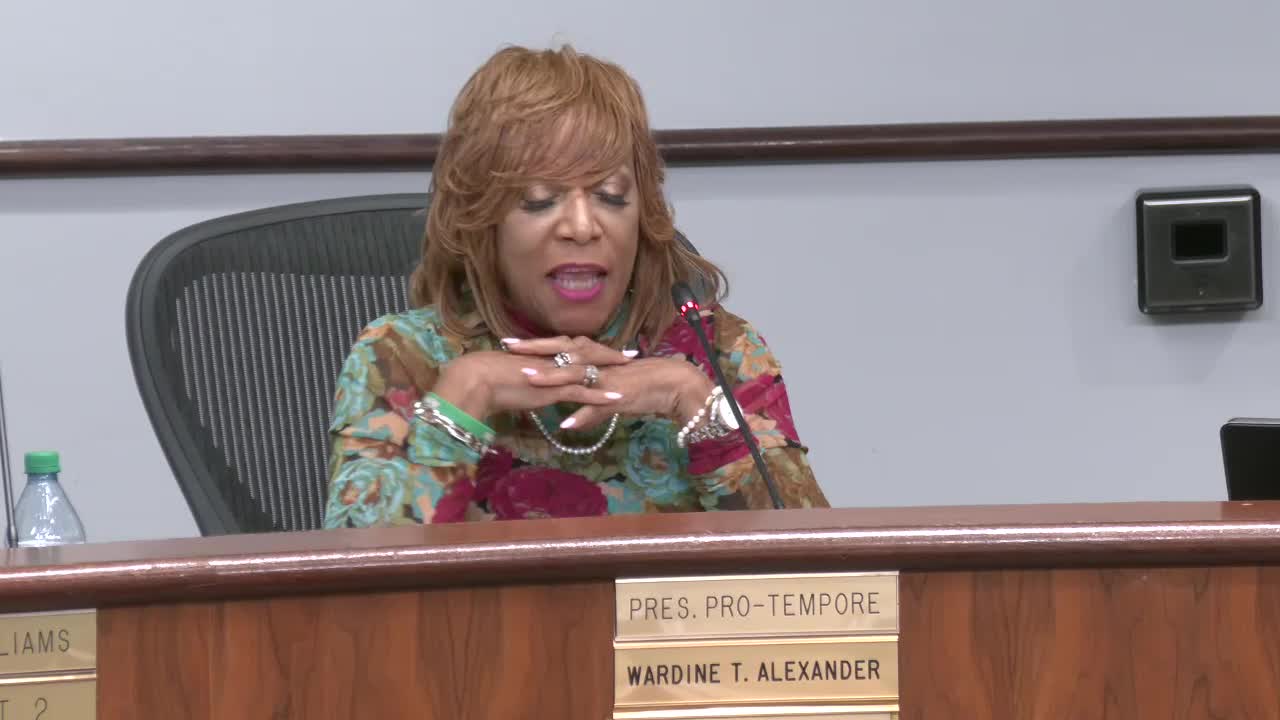Council and mayor debate illegal dumping, street excavation and camera use; transportation committee to press utilities
Get AI-powered insights, summaries, and transcripts
Subscribe
Summary
Council members and Mayor Woodfin discussed illegal dumping hot spots, use of cameras and frequent street excavations that tear up recent paving. Transportation committee asked utility providers to report on planned work at its March 24 meeting.
Councilors and the mayor spent time Tuesday discussing persistent illegal dumping, recent paving followed by utility excavations, and the city—s use of cameras for enforcement.
Mayor Woodfin urged residents to document illegal dumping with video and 311 reports, saying a viral video the city posted had helped identify dumpers and that footage can lead to arrests. "If you can help us catch these people in the act, that will be very helpful," he said, while also warning against vigilantism.
Council members described specific problem areas and proposed responses. Councilor Moore suggested blocking off some streets and restricting vehicular access in vacant areas to reduce opportunities for dumping and to increase natural surveillance by residents. Councilor Clark and others pointed to the MyBHEM 311 system and the city—s process for issuing excavation permits; officials noted that when streets are recently paved, contractors must pay a fee to reopen them.
Councilors also discussed an uptick in utility and contractor excavations that follow city paving work. The mayor said the city has spent roughly $60 million on paving over the last six to seven years and complained that subsequent utility cuts have undermined that investment. Transportation Infrastructure Committee chair announced a meeting Monday, March 24, to which utility providers, overhead and underground utilities, and stormwater staff were invited to report on current and anticipated work.
Council members raised truck traffic through residential areas and suggested contacting the Alabama Department of Transportation about 18-wheelers using local streets as shortcuts.
Why it matters: repeated excavations and illegal dumping affect neighborhood quality of life and city maintenance costs; the council asked utilities and contractors to explain planned work and compliance with excavation rules.
What to watch next: the Transportation Infrastructure Committee meeting on March 24, when utilities are expected to present schedules and repair plans.
